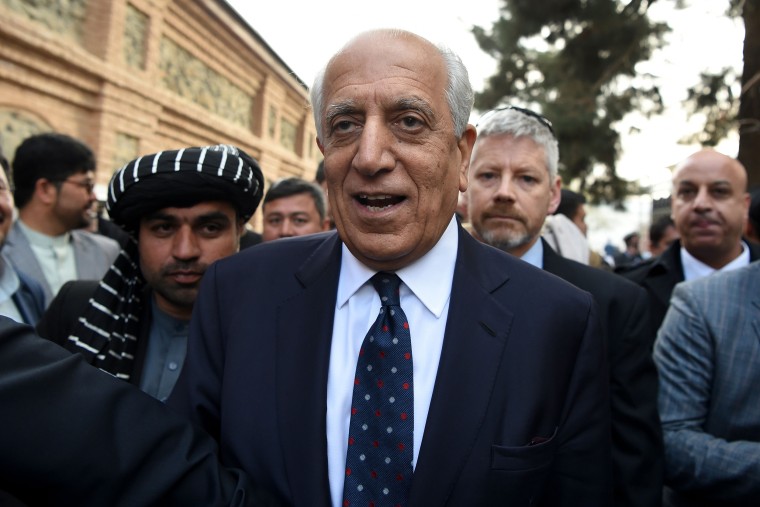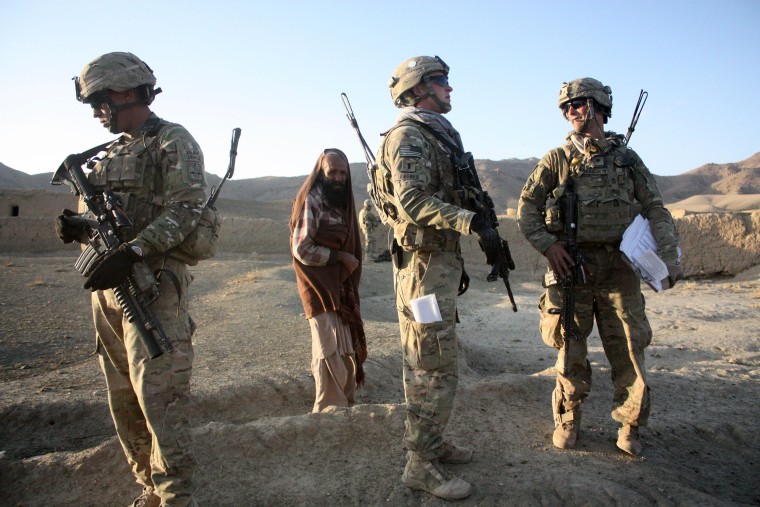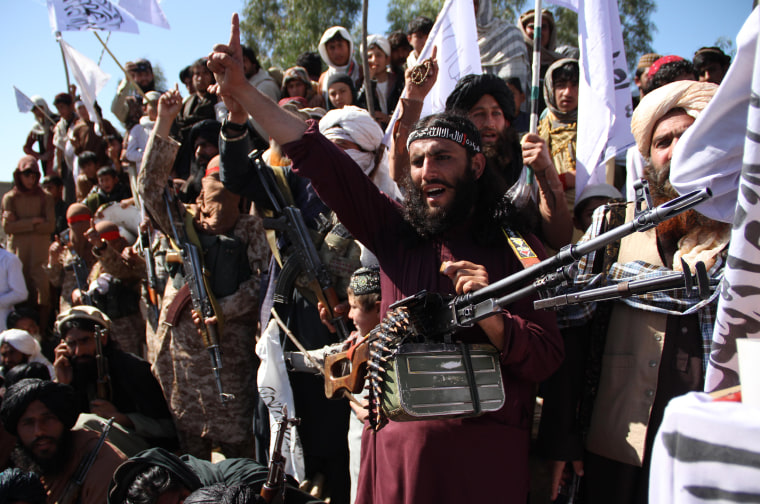WASHINGTON — The Taliban have retained close links to al Qaeda and sought its advice during recent negotiations with U.S. officials, despite promising to break ties with the terror group under a preliminary peace agreement with the U.S., according to a U.N. report released Monday.
Al Qaeda, which carried out the Sept. 11, 2001 attacks on the U.S., continues to operate in 12 provinces of Afghanistan, with 400-600 operatives and a training camp in the eastern part of the country, according to the report issued to the U.N. Security Council.
Relations between the Taliban, including its partners in the Haqqani network, and al Qaeda “remain close, based on friendship, a history of shared struggle, ideological sympathy and intermarriage,” the U.N. report said.
“The Taliban regularly consulted with al Qaeda during negotiations with the United States and offered guarantees that it would honor their historical ties,” said the report by the U.N. Analytical Support and Sanctions Monitoring Team.
The U.N. report suggests the Taliban have failed to keep their word on a provision seen as central to the U.S-Taliban agreement signed on Feb. 29 in Doha. President Donald Trump has portrayed the deal as a success story.
Under the deal between the U.S. and the Taliban, the insurgents promised not to allow Afghanistan to be a launching pad for terrorist attacks on the U.S. and to enter into peace talks with the Afghan government. In return, Washington agreed to withdraw U.S.-led troops within 14 months.
President Donald Trump hailed the agreement as a breakthrough that would bring American troops home after 19 years of war. Secretary of State Mike Pompeo said on March 1 that the Taliban “have now made the break” with terrorist groups and “agreed that they would break that relationship and that they would work alongside of us to destroy, deny resources to and have al Qaeda depart from that place.”
The U.N. report, however, said al Qaeda “has reacted positively to the agreement, with statements from its acolytes celebrating it as a victory for the Taliban’s cause and thus for global militancy.”
While the U.S. was holding talks with Taliban representatives in Doha in 2019 and 2020, al Qaeda and the Taliban also held meetings “to discuss cooperation related to operational planning, training and the provision by the Taliban of safe havens for al Qaeda members inside Afghanistan,” according to the report.
Asked about the U.N. findings, U.S. special representative Zalmay Khalilzad, who led the negotiations with the Taliban, told reporters on Monday the insurgents had taken some steps toward severing ties with al Qaeda and other terrorist groups but that more action was needed.
Khalilzad said that “we believe that there is progress, but we will continue to monitor those activities very closely.”

He offered no details of steps the Taliban had taken, saying it was a “sensitive issue.” The U.S. envoy also did not address questions as to whether insurgents were consulting with al Qaeda during the Doha talks.
The Afghan-born U.S. diplomat, who previously served as ambassador to Afghanistan under President George W. Bush after the 9/11 attacks, added that the U.N. report covered a period ending on March 15, and that the U.S.-Taliban agreement was only signed on Feb. 29.
Khalilzad also expressed optimism that prospects for peace had improved after a recent ceasefire over the Muslim holiday of Eid al Fitr in May, lower levels of violence and more prisoner releases by both the Afghan government and the Taliban.
"I believe we are in a more hopeful moment that validates our approach," he said.
A newly formed Afghan government was discussing when and where to hold peace talks with the Taliban, he said. The face-to-face talks between the two foes were supposed to start in March under the U.S.-Taliban deal but have yet to begin due to disputes over prisoner releases and other issues.
As U.S.-Taliban negotiations progressed late last year, al Qaeda worried that its Taliban allies were preparing to abandon their partnership, according to the U.N. report, which was based on information provided by U.N. member states, including from intelligence services, and regional officials.
The U.N. report said information indicated al Qaeda operatives carried out an attack on Bagram airfield in December because they were “concerned that the prospective agreement called for the Taliban to break ties with al Qaeda and foreign fighters.”
The report said there were indications that the Taliban leadership had not fully disclosed the details of the agreement, including a commitment to cut ties with al Qaeda and foreign terrorist fighters, to its members out of “fear of a backlash” and that the issue “had surfaced repeatedly as a topic of acrimonious internal debate.”
If the Taliban abide by their obligations in the U.S. agreement and step away from al Qaeda, it could produce a deep split in the group with one faction refusing to renounce al Qaeda, according to the UN report.
Khalilzad said he could not vouch for individual members of the Taliban or factions inside the group, but he said “the Taliban as a whole have made this commitment” to cut ties to al Qaeda.
He added, “We recognize the importance of this issue. This is vital, the issue of terrorism.”
The U.S. will press the Taliban over the issue and when necessary undertake “operations that are needed as well,” he said.

Thomas Joscelyn, a senior fellow at the Foundation for the Defense of Democracies and a critic of the U.S.-Taliban agreement, said the administration has failed to provide concrete examples of how the Taliban have cut ties to al Qaeda as promised.
“The Trump administration and the Taliban are going to have to show us real evidence of some kind of break with al Qaeda if they're going to continue to portray the Doha agreement as still being in effect,” Joscelyn said.
NBC News previously reported that the U.S. government had collected persuasive intelligence that the Taliban did not intend to honor the promises they made in the February deal with the United States.



